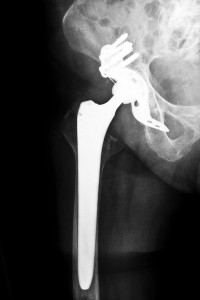
Patients suffering complications from their Biomet M2a Magnum hip replacement device may be entitled to file an Iowa Biomet hip lawsuit to seek compensation for their injuries. According to lawsuits, the M2a Magnum was defectively designed and plaintiffs are attempting to recover damages including pain and suffering, lost wages, and medical expenses.
Biomet Lawsuits Filed in the U.S.
Plaintiffs allege that the two metal components of the M2a Magnum have the potential to rub against one another during daily activities such as bending and walking. As a result, patients may be at risk for metal toxicity or metallosis should the friction cause metal shards to travel into the blood stream. Consider seeking legal counsel to learn more about filing an Iowa Biomet hip lawsuit if you experienced complications, including:
- Chronic pain
- Tissue death
- Early device failure
- Formation of pseudotumors
- Bone disintegration
- Removal and revision surgeries
- Permanently disability
- Metallosis or metal poisoning
Since February 2011, the U.S. Food and Drug Administration (FDA) has been investigating the safety of several metal-on-metal hip replacement devices. In January 2013, the agency released an announcement acknowledging that the moving of the metal components against one another can seriously damage the tissues and bones surrounding the hip implant.
Patients who have been injured are urged to seek legal representation to file an Iowa Biomet hip lawsuit. Additionally, the FDA has suggested that all metal-on-metal hip recipients undergo routine laboratory and blood testing to analyze the amount of chromium or cobalt ion levels in their blood regardless of whether a patient is experiencing adverse side effects.
Additionally, the FDA is considering proposing a new regulation that would prevent all-metal devices from receiving approval through the agency’s 510(k) clearance process. This method of approval has drawn criticism from many health experts because it allows devices to be placed on the market even if the manufacturer has not adequately tested the product first. Instead, a device can receive approval if the manufacturer can prove that it is similar in design and function to a product already on the market.
While barring all-metal hip replacement devices from receiving automatic FDA approval helps future patients, taking such an action now does little to help metal-on-metal hip recipients who are currently suffering from complications and side effects. As a result, those who have been injured may be entitled to file an Iowa Biomet hip lawsuit and seek compensation for their injuries.
The statute of limitations in Iowa is two years from the date on which the injury occurred. It is important that all potential plaintiffs pursue their claims within this time frame. Should they fail to do so, they may be unable to seek compensation for their injuries in the future. Depending on the facts of each particular case, a patient may be eligible to recover damages for lost wages, medical expenses, and pain and suffering.
Do You Have an Iowa Biomet Hip Lawsuit? Contact Us Today
If you or someone you love received a Biomet hip implant and suffered from serious complications, you may be eligible to recover damages for your injuries by filing an Iowa Biomet hip lawsuit. Contact Attorney Group for Iowa today to learn more about your options and to receive a free case evaluation. We can put you in touch with one of our affiliated attorneys who can file your Iowa Biomet hip lawsuit and assist you throughout the legal process.





